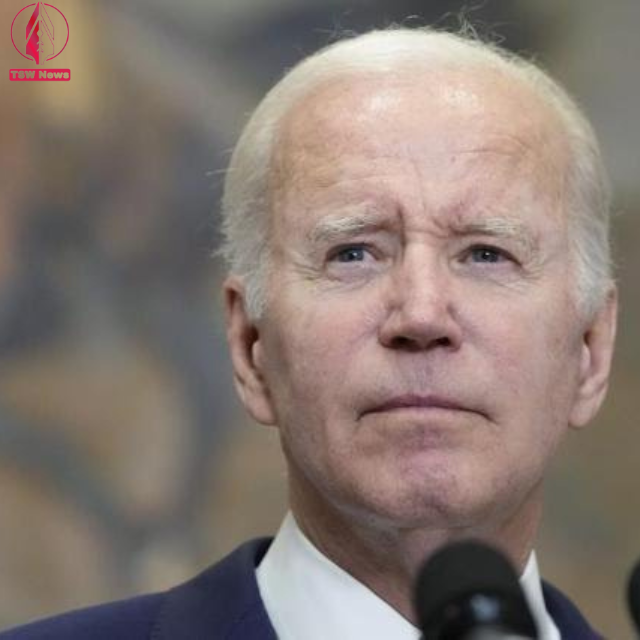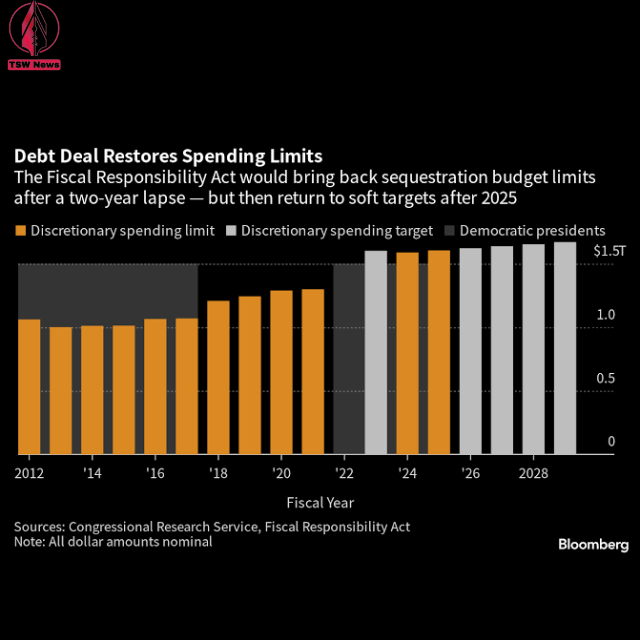Unraveling the Debt Limit Deal: Challenges Ahead for Social Security, Medicare, and Medicaid
- Posted on May 31, 2023
- News
- By TSW NEWS DESK
- 240 Views

The escalating deficits in the United States and the political conflicts surrounding the debt limit agreement for Social Security, Medicare, and Medicaid present formidable obstacles.
Despite implementing spending restraints as part of the debt limit agreement, which reduced borrowing by $1.5 trillion, the government's deficits are projected to continue increasing to unprecedented levels over the next few decades.
The current agreement between President Joe Biden and House Speaker Kevin McCarthy may be merely a stopgap before more heated confrontations over the federal budget. According to the Congressional Budget Office, the agreement will reduce expenditure by $1.3 trillion over 10 years and interest payments by $188 billion.
However, these cuts are not enough to soothe the rising costs of Social Security, Medicare, and Medicaid.
Even before their budget discussions began, both Biden and McCarthy ruled out any cuts to Social Security and Medicare, two popular programs that benefit elderly voters. It reflects the political factors preceding the next presidential election.

However, this agreement leaves the possibility of debt escalation on the table and sets the stage for another contentious debate in 2025, when the debt ceiling must be raised once more.
Legislators are aware of the difficult decisions that lie ahead, which will likely involve a combination of significant expenditure cuts, broad tax increases, and significant changes to retirement income and healthcare programs, which consume a growing portion of federal spending.
Social Security, Medicare, and Medicaid, among others, already account for the majority of government expenditures. It is anticipated to increase from its current magnitude of 14% of the U.S. gross domestic product (GDP) to 15.6% by 2023.
In contrast, discretionary expenditure accounted for only 6.5% of GDP in 2012 and is projected to fall to 6% within the next decade.
Social Security faces challenges as its trust fund may not be able to sustain full benefits within the next decade, although some experts remain optimistic that leaders from both parties will find a way to reduce the growth in healthcare program expenditure.
According to critics, the current debt limit agreement is
more concerned with appearances than with sustainability. They believe it lacks
substance in terms of modifying the U.S. debt trajectory.
The agreement intends to keep discretionary spending relatively
flat over the next fiscal year, with modest increases for military and veterans
accounts.
The spending growth rate for 2025 would be restricted to 1%,
which is essentially a cut when accounting for inflation.
Some Democrats are concerned about the agreement because it
concedes ground to Republicans who intend to use the debt limit debate to
advance their policy objectives despite the risk of default.
As investors continue to purchase Treasury notes, economic
analysts disagree with GOP claims that the United States is already debt-bound.
Although the federal debt exceeds $31 trillion, the U.S. economy has
non-financial assets worth over $143 trillion, indicating that the current debt
burden is manageable.
While a debt crisis may not be imminent, there is a long-term
issue that was purposefully neglected in recent negotiations. The debt is
soaring due to the aging population and the attendant costs of programs for the
elderly.
Phillip Swagel, the director of the CBO, presented several
policy options for reducing the national debt, including tax increases that
could generate trillions of dollars over a decade.
However, Republicans have rejected tax increases, and
Democrats have been reluctant to reduce benefits.
Swagel's presentation warned that the longer policy changes
are delayed, the more drastic they will become.
For more updates keep visiting our website
www.topstoriesworld.com where we
provide unbiased, true and top stories of the world.




